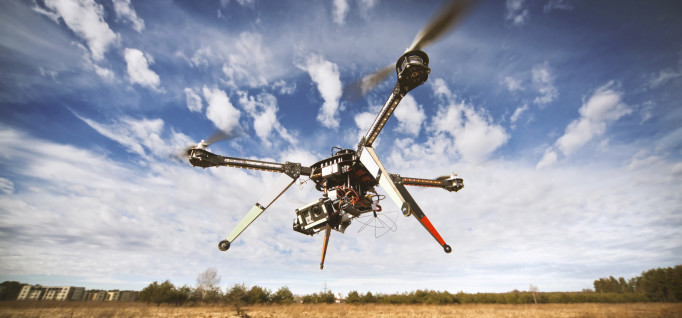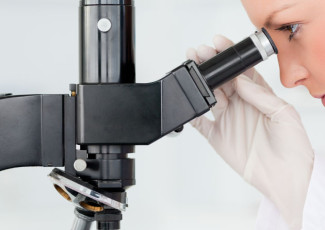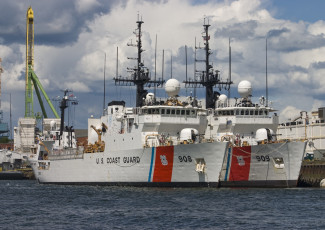Flying High: Can Drone Programs Help Close the Skills Gap?
By Corey Murray
April 24, 2014
Once the province of law enforcement agencies and the military, unmanned aircraft are the new darlings of commercial business, and U.S. community colleges are on the front lines of training and research.
Amazon founder Jeff Bezos created quite a stir last year when he predicted that drones would one day help the company deliver packages to its legions of customers.
While that reality is still a ways off, the commercial market for unmanned aircraft is surging, and a handful of U.S. community colleges and other institutions have announced partnerships and programs designed to create new job opportunities for students.
Test site goes live
On April 21, the Federal Aviation Administration (FAA) announced that the first of six congressionally mandated test sites for commercial drone use was operational in North Dakota. The site, which will use drones to conduct soil research and further explore the viability of the technology in commercial use, received a two-year clearance from the FAA to operate the aircraft. Additional test sites will open in Alaska, Nevada, New York, Texas and Virginia over the next several months and will run through 2017.
Educational institutions, including several community colleges, near the federal test sites have announced partnerships or programs to feed off the research.
In Minnesota, Northland Community & Technical College, not far from the site in North Dakota, recently announced FAA approval to pilot drones over rural portions of Roseau County, provided the college obtains permission from landowners.
Professors and students will pilot the aircraft, which will be used to collect agricultural data.
The Virginia test site, located on the campus of Virginia Tech, has agreements in place with educational institutions in New Jersey and Maryland that will expand its research across state lines.
Educators at Atlantic Cape Community College (ACCC), on the Jersey coast, are preparing to launch a new course on drone operations this fall.
In the Pacific Northwest, Central Oregon Community College (COCC) plans to launch a course that will include simulations and real-time recovery missions and is geared to commercial drone pilots. The program, affiliated with the Alaska test site, also starts in the fall.
“This could be one of the next biggest opportunities for employment here in the future,” Karl Baldessari, COCC aviation program coordinator, told KTVZ News.
Proponents of the technology say it will only be a matter of time before the unmanned aircraft systems (UAS) create new job opportunities for students.
“These test sites will give us valuable information about how best to ensure the safe introduction of this advanced technology into our nation’s skies,” U.S. Transportation Secretary Anthony Foxx said in a press release.
Though the FAA does not currently condone the commercial use of UAS, the agency says data collection at the new test sites represents a clear step in that direction. By 2015, FAA officials project as many as 7,500 drones could be approved for use in the commercial airspace.
Experimentation continues
While the six federally mandated test sites have received the lion’s share of attention, interest in the technology and in training workers how to use it is mounting nationwide.
Drone proponents in Ohio expressed disappointment that the state was not chosen by the FAA to host one of the government’s official sites, despite an extensive push. Stakeholders vowed to continue working with businesses and educators across the state to explore the benefits of the technology.
At Sinclair Community College (SCC) in Dayton, Ohio, administrators partnered with local design and engineering firm Woolpert Inc. and Embry-Riddle Aeronautical University to contribute to ongoing drone research.
A story in the Dayton Business Review describes an agreement whereby SCC will give Woolpert access to some of its data analytics software and heavyweight computing power to process data collected by unmanned aircraft.
SCC president Steve Johnson told the review that the partnership “makes sense for us,” adding, “We have a significant investment in information technology and analytics.”
The college has been working with Woolpert, which specializes in geospatial mapping, to operate a small fleet of drones at nearby Wilmington Air Park, where SCC has clearance to operate the machines. The latest agreement enables the college to help the company analyze the information it collects on those missions.
“When we fly, we can collect 100 gigabytes of data an hour,” Jeff Lovin, senior vice president at Woolpert, told the review. “It can take days to process that data, but with the horsepower at Sinclair we can take that down to hours.”
The work is closely tied to that of the college’s $5 million Unmanned Aerial Systems Training and Certification Center, which is focused on creating opportunities for the technology in the region. (For more on drone technology at SCC, see the video from Ohio’s 2 News WDTN below.)
Is your college interested in drone technology as a potential job creator in the region?
















